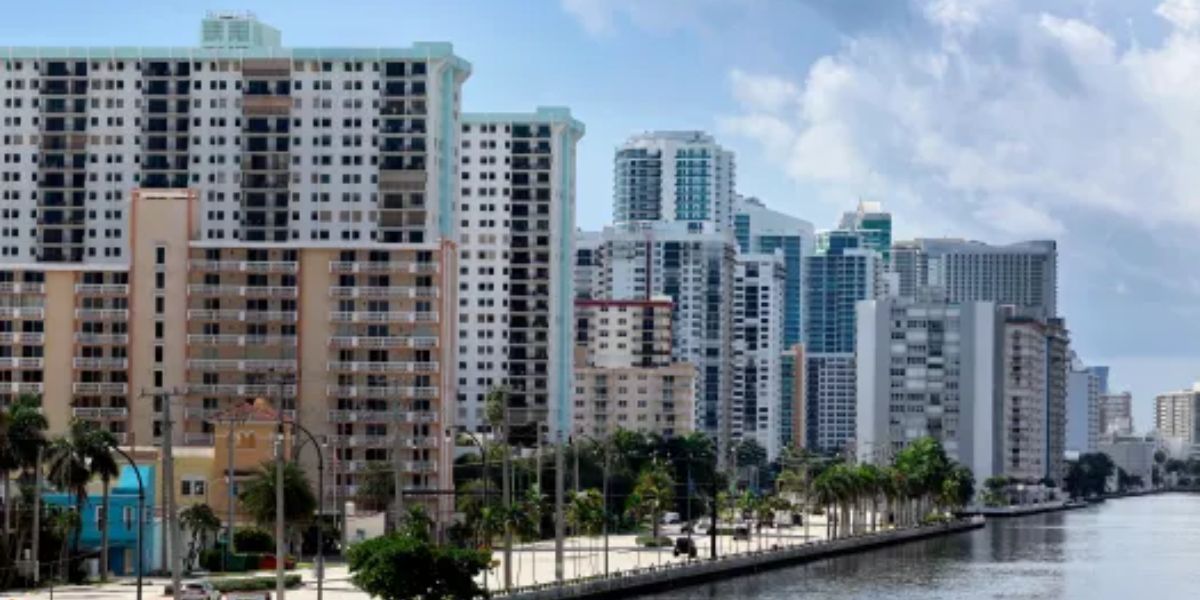In the wake of mounting financial pressure and persistent safety concerns, Florida condo owners are finally getting a break as a new law takes effect on July 1.
Last week, Gov. Ron DeSantis signed a sweeping condominium reform bill aimed at easing the burden on condominium associations and owners struggling to meet the steep requirements introduced after the 2021 Surfside condo collapse.
The disaster prompted sweeping legal reforms requiring structural inspections, reserve studies, and stricter governance rules—especially for older buildings. But those changes, while aimed at safety, triggered significant financial stress and plummeting condo sales.
Closed condo and townhouse sales dropped 20% statewide in May compared with last year, according to Florida Realtors, while single-family home sales saw just a 6% decline. Although prices have softened slightly, rising inventory and costly new requirements have rattled confidence in the condo market.
Now, city officials and real estate professionals hope the new legislation—set to take effect on July 1, 2025—can ease some of those pressures.
Condo boards to get more flexibility, more scrutiny
The new law addresses long-standing frustrations over transparency, mismanagement, and fee hikes, while also giving associations more flexibility around compliance.
“If they’ve just done a big safety inspection or are already fixing things, they can wait up to two years before setting aside more money for future repairs,” explain Jonathan Goldstein and Marnie Dale Ragan, equity partners at Haber Law. “They can also use other ways to pay for big maintenance projects—not just yearly reserve funds—as long as the condo owners vote on it.”
Key updates include competitive bidding for contracts, conflict-of-interest disclosures, and mandatory digital access to financial records and board meetings. The goal? Boost accountability and modernize how associations operate.

“The bill arguably increases potential liability for community association managers by expanding upon a trend to codify increasingly demanding professional duties of care,” say Goldstein and Ragan. “It also expressly states that directors and officers have a duty to ensure that any community association manager or management firm contracted with is properly licensed.”
Perhaps the most striking shift: Managers who violate state condo laws could lose their license and be barred from the industry for 10 years—a change that many see as long overdue.
The legislation also takes aim at homeowners associations, which have faced growing criticism over a lack of transparency and board abuse. Under the new law, anyone with a felony theft or embezzlement conviction is banned from serving on a condo or HOA board. Elections are subject to tighter oversight, and board members found guilty of electoral misconduct can face criminal penalties.
To increase accountability, the law also empowers unit owners to challenge misconduct more directly. Residents now have clearer avenues for recalling board members and filing complaints with the state. Still, legal experts say it’s hard to tell if these changes will unburden condo owners from rising HOA fees.
“This depends on whether associations choose to avail themselves of alternative funding options or are in a circumstance in which structural integrity reserve funding may be delayed,” say Goldstein and Ragan. “Even then, the delay is often tied to a costly restoration project already underway. Alternative funding may ease short-term budget stress, but could bring added long-term costs.”
A stronger push for financial transparency
Condo owners have long complained about being left in the dark on where their fees are going. The new law directly addresses that by requiring associations to make financial records more accessible—and by giving prospective buyers more time (up from three to seven days) to review those documents before closing.
“While the law can alleviate or delay certain financial pressures affecting condo owners and depressing condominium unit values, condominium owners are still exposed to the cost of long-term deferred maintenance,” say Goldstein and Ragan.
They add that while the transparency measures are well-intentioned, they might bring unintended side effects.
“There is a corresponding level of complexity, impracticality, and ambiguities in the implementation of such laws, and they may therefore ultimately lead to increased legal fees, operational uncertainty, and disputes.”
Other key changes include more time to complete annual financial reports and a requirement for associations to explain how they’ll fund their Structural Integrity Reserve Studies, or SIRS—a major expense in many older buildings. The law also protects owners from being charged for unapproved costs like hurricane protection removal, unless they agreed to it in advance.
Altogether, the reforms are designed to bring clarity and confidence back to Florida’s condo market—something buyers and owners alike have been desperately seeking.




